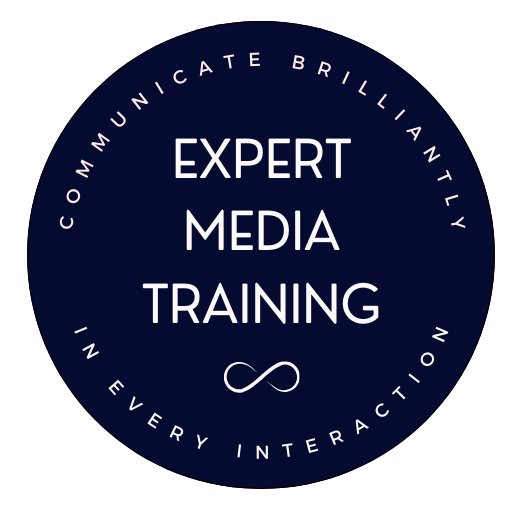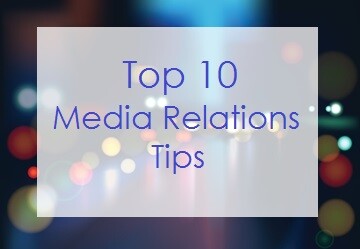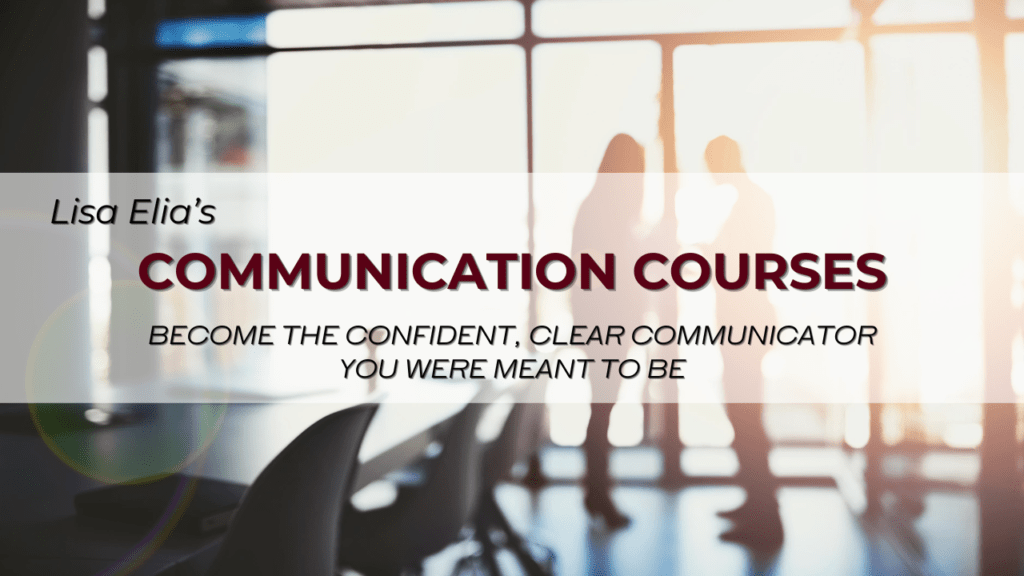Tuesday, October 2, 2012 | Media Relations, Media Training, Messaging, On-camera
 With the increase in opportunities for people to be interviewed by a variety of outlets, more people are becoming aware of the need for media training. As more people begin to make their own videos they may also see that it’s not always as easy as it looks to deliver content in a smooth, engaging way. Add to this the pressure of being asked questions by an inquisitive reporter and you could have a nerve-racking situation. BUT, that doesn’t have to be the case.
With the increase in opportunities for people to be interviewed by a variety of outlets, more people are becoming aware of the need for media training. As more people begin to make their own videos they may also see that it’s not always as easy as it looks to deliver content in a smooth, engaging way. Add to this the pressure of being asked questions by an inquisitive reporter and you could have a nerve-racking situation. BUT, that doesn’t have to be the case.
Like anything else you want to master, learning to handle interviews well just takes practice and guidance. Being a great speaker from the stage or being comfortable making your own promotional videos is not the same as being ready for a media interview.
Here’s my analogy. Rocking out on the dance floor is to the dancing the tango beautifully, what creating your own videos well is to being great in a media interview. To explain: you may be someone who’s comfortable and even looks good freestyling on the dance floor (like creating your own videos). But, would you be able to do the tango without lessons and practice? The tango is precise and intricate and it takes practice to make it smooth and crisp (like being able to answer questions concisely, without hesitancy and with great energy).
Just as you would get training if you wanted to do the tango well, you should get media training if you want to interview well.
You may have seen my other media interview video tips, and this one will give you more to think about.
Watch the media interview video below for some quick media training tips.
Here are more resources you can access on our site.
Frequently Asked Questions about Media Training
https://expertmediatraining.com/faqs-about-media-training/
Media Interview Checklist from a Los Angeles Media Trainer
https://expertmediatraining.com/media-interview-checklist-from-a-media-trainer/
How to Create an Online Press Room That the Media Will Love
https://expertmediatraining.com/online-press-room-tips-from-media-trainer/
Prepare for TV Interviews BEFORE You Book One – Tips from an LA Media Trainer and Spokesperson
https://expertmediatraining.com/prepare-for-tv-interviews-media-trainer-tips/
Monday, September 17, 2012 | Media Relations, Messaging
Use these tips to learn how to become an expert people trust.
1. Educate yourself.
Even if you hold an advanced degree in your field, there is always more to learn in your own field and in other arenas that will help you become more creative and resourceful. This will automatically spill into your communications.
2. Get the facts.
Add facts and figures to some of your articles to substantiate your opinions, but only include information from reputable, high-level sources, such as top universities, research institutions or government agencies that provide solid research.
3. Know your industry.
Keep up with the trends and discussions occurring in your industry so you can comment on them when asked by potential clients, colleagues and members of the media.
4. Keep up with technology.

Know specifically how current events and technological developments affect your industry. For example, does new technology influence the products or services you can provide or the way you deliver them? How do new developments affect your followers?
5. Have an opinion.
Quite often people are so afraid of alienating some people or not appealing to everyone that they don’t commit to an opinion. However, you will attract “your tribe”, those people who truly resonate with you, ONLY when you clearly state your opinion.
6. Play nicely with others.
Mingle with other experts in your field so they consider you when seeking colleagues to share stages with them or to refer to the media or potential clients they cannot or choose not to serve.
7. Be the solution.
Don’t merely state problems. Provide concrete solutions, tips and resources to help solve those problems.
8. Anticipate their needs.
It’s important to not only stay in touch with the needs of your followers/your audience, but to know what they need before they know they need it. This is how you can advise them on mistakes to avoid and shortcuts to take to help them succeed more easily.
9. Don’t be a stranger.
Whether you share information through your blog, Facebook, a newspaper column or TV segments, keep giving your audience more good information. Don’t tease them with some golden nuggets of wisdom and then disappear for months on end…unless you’re doing something amazing for humanity in some remote place with no Internet access.
10. Get fresh.
Add something new and fresh to the world conversation. People are always looking for creative approaches to old problems, new opportunities that they haven’t considered and hope that there are untraveled roads to be traveled. Show them the way.
Now that you know how to become an expert, do you need tips on authenticity, messaging or branding?
Read the blog posts below.
Authenticity and Your Message – a Note from a Media Trainer
https://expertmediatraining.com/authenticity-message-from-media-trainer
Media Training Tips on The Language of Your Brand in Media Interviews
https://expertmediatraining.com/brand-language-media-training-tips
If you want to share tips on how to become an expert with your friends, you can do so by using the share buttons below.
Wednesday, September 12, 2012 | Media Relations, Media Training, Messaging, On-camera
Many years ago, when I was working as a publicist, I had a client who INSISTED that she didn’t need media training because she had been interviewed by the press and had created some of her own promotional videos. When I booked her on an NBC segment, she was unaware that a second camera was on her while the interviewer spoke. What was caught on camera? It was my client looking down at the ground, appearing disengaged. NOT GOOD! Easily avoidable media interview mistakes like this are the reason I now insist on media training my clients, or at least doing a mock interview or two with them, to make sure they’re truly camera-ready and media-ready.
If you plan or hope to be interviewed by media outlets, from the smallest online radio shows to the largest national TV shows, I encourage you to invest in media training from an experienced pro, so that you become aware of media interview mistakes that can be avoided. In the meantime, this article will help you avoid some of the most common mistakes people make in media interviews.
These are five media interview mistakes to avoid:
Media Interview Mistake # 1: Assuming you’re “a natural” because you’re a good public speaker or you’re good at making your own promotional videos. When you control the situation, it’s much easier to shine. When you have the pressure of answering questions quickly with cameras on you or a live audience listening in, it can be much more challenging and can fluster even the most confident people.
Tip: Practice being interviewed by a challenging interviewer. (When I conduct media training sessions, one of the many things I do is to play “jerky reporter” and ask tough, sometimes obnoxiously rude questions and then I help you develop answers and strategies to deal with this type of situation in the real world.)
Media Interview Mistake # 2: Providing long, meandering answers to questions. Many TV and radio interviews are very brief, lasting just a few minutes. So, you have to provide concise, meaningful responses to questions. Brevity is important in print interviews, too. A magazine editor I know said that one interview subject she spoke with went on and on about himself for so long during a telephone interview that she stopped taking notes and started cleaning her house…while he was still blabbing on about himself. Don’t be THAT person.
Tip: Get your messaging down. Think of answers to the most common questions you think you will get and rehearse them, but not word-for-word; just get the content down. (Messaging is one of the first things I work with clients to develop. It informs everything, from the way we develop your press kit materials, to the verbiage used on your web site, to the way you introduce yourself to people.)
Media Interview Mistake # 3: Not knowing enough about the media outlet and its audience. The more you understand the media outlet you’re being interviewed for, the better able you will be to communicate with the interviewer or host appropriately and provide examples or anecdotes that suit the outlet’s audience.
Tip: Research the media outlet and the interviewer prior to your interview. If you’re going to be on a TV show, watch it. If you’re going to be on a radio show that you’re not able to access, spend time on the station’s web site to get a feel for it. Read any print publication where you will be interviewed and, in particular, read articles authored by the person who will be interviewing you.
Media Interview Mistake #4: Trying to be funny when you’re not. Not everyone has the gift of good comedic delivery. While humor is welcomed in many interviews, don’t try to force it because it won’t come off well.
Tip: Be the best version of yourself. Don’t try to be someone you’re not. Sometimes a straightforward, clear interview is EXACTLY what the outlet wants and EXACTLY what will attract potential clients or speaker bookers or sponsors who may be watching or listening to you.
Media Interview Mistake #5: Being unaware of the camera. You can’t just BE on camera and forget about, although the most polished show hosts and guests make it look that way.
Tip: Ask how much of your body is included in the shot and where the camera operator wants you to look. Sometimes you will be asked to look at the camera, sometimes next to it and sometimes somewhere else. It varies from show to show.
There’s much more to share about techniques to control your nerves and manage your energy, how to deliver your message in pyramid form, how to incorporate a call to action and lots of other techniques. However, true media training is experiential. There’s nothing like being in the process and learning in a hands-on (or on-camera) way.
By dodging these media interview mistakes, your interviews will run smoothly, and you’ll be more likely to be interviewed again!
Share these media interview mistakes to avoid on social media, by using the share buttons below.
Now that you know some of the most common media interview mistakes to avoid, do you need additional media training resources?
Here are some resources that you can access on our site.
Prepare for TV Interviews BEFORE You Book One
https://expertmediatraining.com/prepare-for-tv-interviews-media-trainer-tips/
Media Interview Checklist
https://expertmediatraining.com/media-interview-checklist-from-a-media-trainer/
Media Training Resources
https://expertmediatraining.com/media-training-resources/
Top 10 Media Relations Tips – Media Training Tips
https://expertmediatraining.com/media-training-tips-for-good-media-relations/
Frequently Asked Questions about Media Training
https://expertmediatraining.com/faqs-about-media-training/
If all the world’s a stage, own it while you’re on it!
Thursday, September 6, 2012 | Communication, Messaging
Advice on Positioning Yourself as Someone with Influence, from a Media Trainer
 Gossiping about others can actually be good for you and can help you feel more supported and raise your self-esteem, but only if it’s positive gossip, such as praising another person, according to research conducted at Staffordshire University in the United Kingdom. The study found that people who gossiped negatively about others did not experience the same lift in self-esteem. If you spend time criticizing others, even if your criticism is directed at a group of people or people who think differently than you, how do you feel afterward? Do you feel really good and happy and energized? You may have an adrenaline rush, like you would when you prepare for a fight, but that should not be confused with actual feelings of joy or elevation. If you criticize others, how do you think others perceive you? What about the people who believe in the things you’re putting down by making sweeping statements about people who do things in a way that you don’t support—have you alienated them?
Gossiping about others can actually be good for you and can help you feel more supported and raise your self-esteem, but only if it’s positive gossip, such as praising another person, according to research conducted at Staffordshire University in the United Kingdom. The study found that people who gossiped negatively about others did not experience the same lift in self-esteem. If you spend time criticizing others, even if your criticism is directed at a group of people or people who think differently than you, how do you feel afterward? Do you feel really good and happy and energized? You may have an adrenaline rush, like you would when you prepare for a fight, but that should not be confused with actual feelings of joy or elevation. If you criticize others, how do you think others perceive you? What about the people who believe in the things you’re putting down by making sweeping statements about people who do things in a way that you don’t support—have you alienated them?
 If you’re positioning yourself as a woman or man of influence, be aware that what you say about others reflects strongly on you.
If you’re positioning yourself as a woman or man of influence, be aware that what you say about others reflects strongly on you.
Your words can make you seem magnanimous, compassionate and like a shining light leading the way. Negative words about other individuals or groups of people can make you appear punitive, judgmental, disgruntled and limited. One study revealed that your perceptions of others reveal your general outlook on life. If you perceive others positively and speak of others positively, people perceive you as emotionally stable, capable, kind-hearted and satisfied with your own life, according to a study that was recently published in the Journal of Personality and Social Psychology.
When you think of the type of person your potential clients want to work with, wouldn’t they possess these qualities?
One of the biggest mistakes I coach my clients to avoid is to NOT make general negative statements about groups of people or their own industry, which many people do in order to position themselves as different from, or superior to, their competitors. This can backfire as you distance yourself from the very people who could be referral sources or supporters. So, the next time you think about airing a gripe or grievance about “people who do this or that” think about how it will reflect on you. Others will.
On the other hand, if you have good things to say, let the love flow!
Now that you know how to position yourself, do you need additional media training tips and advice?
If so, check out these blog posts:
Does the Way You Talk About Yourself Help or Hinder You
https://expertmediatraining.com/the-way-you-talk-about-yourself/
Media Training Resources
https://expertmediatraining.com/media-training-resources/
Frequently Asked Questions about Media Training
https://expertmediatraining.com/faqs-about-media-training/
Learn about my recorded communication program at https://expertmediatraining.com/confident-and-clear
Wednesday, August 29, 2012 | Business Tips, Messaging, Social Media
Eric Clapton sang, “It’s in the way that you use it.” While this applies to many things, it certainly applies to what you do with press placements.
 One of the best things about getting press coverage is that you can use it to help your business in a multitude of ways. Certainly, good press placements can help new clients and buyers find you, so you can experience an immediate burst in sales. However, there’s so much more that you can do to maximize every placement you get.
One of the best things about getting press coverage is that you can use it to help your business in a multitude of ways. Certainly, good press placements can help new clients and buyers find you, so you can experience an immediate burst in sales. However, there’s so much more that you can do to maximize every placement you get.
Being featured in respected media outlets raises your esteem in the eyes of most people because they know that most reputable TV shows, radio shows, newspapers, magazines and web sites will conduct some research before interviewing someone. So, if you’re featured as an expert or your product is selected for inclusion in a magazine, you’re getting a third-party endorsement from the media, who are thought to be “in the know.”
To learn how to use press placements, once you get them, read on.
Ten Great Things To Do with Press Placements
1. Post a scan of the print article or a video or audio clip in your online press room. If you don’t have an online press room yet, I highly recommend creating one, especially if you want more press.
2. You can also post impressive press clippings on the home page of your web site so anyone who visits your site can see them.
3. Share links to them with your sales team or use it for your own sales calls. If you take care of sales yourself, send links to great press placements to potential clients and existing clients who can benefit from the information or who will enjoy seeing you or your products featured in the media.
4. If you sell products and you have a sales team or sales reps, share your press clippings with them immediately so they can present them to potential clients who may want to buy more of your product to meet the anticipated increased demand it due to the media exposure. You can also make them aware of upcoming media coverage so they can prepare for increased demand for your product by purchasing more of your product.
5. Engage people you email by sharing a link to the article or broadcast clip that you host on your web site in the signature of your e-mail. Be sure to tell people why they should click on the link (e.g., “Click here to read what the NY Times said about us.”)

6. Use your press to get more press. Use your press placements as fuel for other articles and interviews by including links to articles and appearances in emails you send to pitch the media. Just be sure to NOT pitch a similar idea that’s covered in the piece you’re sharing with a competitive outlet. They really don’t like that.
7. Get your social media friends excited about your good news. In addition to you sharing links to your press clippings on Facebook, Twitter, LinkedIn and other social media, ask friends to tweet and share on Facebook about your press placements.
8. Include press clippings and TV and radio segment clips in sponsorship packages, if you’re seeking sponsors. Companies who are considering spending their marketing dollars on you will want to see that you’re highly visible and that you’re media savvy enough to garner press coverage (or have a PR rep who is) so you can potentially get press coverage for them, if they sponsor you.
9. If you’re a public speaker and you’re trying to attract more speaking engagements, post your clippings on your web page/area devoted to you as a speaker. This will raise your credibility greatly and it will impress people who are considering booking you to speak at their events.
10. Display copies of your press clippings at events where you’re hosting a table. Here’s a great way one of our clients, photographer Kerry Kara, used her press clippings. She took the double-page spread of her photos that we had secured for her in Modern Bride and had it blown up and mounted on display boards to grace her table at a bridal show. The display attracted people to the booth and helped her book thousands of dollars in business.
Press placements are an asset. Use them to your greatest advantage with this list of 10 things to do with press placements.
Now that you know how to use press placements, once you get them, do you need additional media training resources and tips?
If so, visit these links on our site:
Videos with Tips to Improve Communication, Presentations, Speeches and Media Interviews:
https://expertmediatraining.com/videos-media-interviews-presentations-speeches-investor-pitches
Frequently Asked Questions about Media Training
https://expertmediatraining.com/faqs-about-media-training/
Media Training Tips for Actors, Music Artists and Performers
https://expertmediatraining.com/media-training-for-actors-music-artists-and-performers-media-interview-tips/
Media Interview Checklist from a Los Angeles Media Trainer
https://expertmediatraining.com/media-interview-checklist-from-a-media-trainer/
How to Create an Online Press Room That the Media Will Love
https://expertmediatraining.com/online-press-room-tips-from-media-trainer/
Prepare for TV Interviews BEFORE You Book One – Tips from an LA Media Trainer and Spokesperson
https://expertmediatraining.com/prepare-for-tv-interviews-media-trainer-tips/
Save
Friday, August 24, 2012 | Media Relations, Media Training, Messaging
 Media training is about much more than your delivery on camera. Good media trainers educate you on how to work well with all types of people who work in the media — TV producers, radio producers, print editors and writers. They each have specific needs, but there are some things that many members of the media who I have interviewed agreed upon. This is the list of media relations tips that I created, based on what I have learned while working with the media over the last 20+ years.
Media training is about much more than your delivery on camera. Good media trainers educate you on how to work well with all types of people who work in the media — TV producers, radio producers, print editors and writers. They each have specific needs, but there are some things that many members of the media who I have interviewed agreed upon. This is the list of media relations tips that I created, based on what I have learned while working with the media over the last 20+ years.
Top 10 Media Relations Tips from a Media Trainer
1. Be polite and respectful.
Editors, journalists and producers are paid to find stories that will interest their respective audiences. In essence, they are the experts on their particular media outlets. If they tell you that your story is not right for their audience, believe them. This does not mean, however, that you can’t offer them another story unless they have told you that YOU are not right for their respective media outlets. Good manners go a long way, too.
 2. Know your message.
2. Know your message.
You should be so clear on your key messages (i.e., the most important golden nuggets of wisdom you want to share with the world) that you can leave concise voice mail messages or answer questions quickly. (This is one of the first things I work on with my clients.)
3. Read the nonverbal, aural cues.
If you are speaking to a member of the media on the phone and he or she sounds very busy, quickly explain the highlights of your pitch and offer to send the rest of the information via e-mail.
4. Sometimes less is more.
Many media pros have said that they don’t have a lot of time to read through long e-mails, so a couple of paragraphs are all they want.
5. Don’t send attachments with your emails, unless they’re requested.
Most members of the media don’t want you to send attachments with your emails, unless they request them. Put your pitch into the body of the e-mail. Offer to send photos or include links to photos in your e-mail. (Don’t expect the media to download photos from ftp sites: they’re too busy for that.) If you have to send several photos at once, consider using Hightail or another service that allows you to send large files. This will eliminate the need to send several e-mails with photos. It’s all about making it easy for the members of the media to work with you.
 6. Include video links in your e-mails when pitching the media.
6. Include video links in your e-mails when pitching the media.
Make it easy for TV producers to see how fabulous you are on camera. Now, many print outlets and radio shows want video to post on their web sites, so include the video links in all your pitches.
7. Respond to media requests quickly, usually within 24 hours or less.
When writers and producers are working on a story they are usually under a tight deadline. If you don’t respond quickly they may move on to someone else.
8. Don’t try too hard to control the story.
I have seen people lose press opportunities because they tried to re-schedule a TV shoot or they have pushed to have certain content included, instead of what the producer or writer wanted to cover initially. You can offer your ideas, but pushing too hard can unravel a great media placement. Good media relations are developed when you are aware of the difference between a paid ad and a press opportunity. They are vastly different.
9. Offer extra valuable information.
If you have pertinent information, such as common misconceptions or new research, that could help the producer or writer with his/her story, offer it. Members of the media count on experts they interview to fill in the blanks for them.
10. Be prepared.
When you have an interview scheduled, be sure you’re ready! Have your press kit together, have your elevator pitch and key messages so set that they just spill out of you naturally and get media training.
Lisa Elia

If you want to find out if my media training services are a good fit for you, set up a complimentary consultation call.
Here are links to other articles with valuable media relations and media training tips:
For a Media Interview Checklist to keep on hand, click here.
To read my Top 5 Mistakes to Avoid in Media Interviews, click here.
To read How to Create an Online Press Room That the Media Will Love, click here.
For Media Training Tips on The Language of Your Brand in Media Interviews, click here.
Prepare for TV Interviews BEFORE You Book One. Click here.
If you would like to reach our office, call 310-479-0217.

Monday, August 6, 2012 | Communication, Confidence, Media Training, Public Speaking
Quite often we’re unaware of the little ways in which we tell people exactly what we think of ourselves. I’ve heard people say things like, “It’s been such a tough year; we’re really struggling,” or “Well, I have a little business I run out of my living room,” or “I’m just getting started so my business is really small.”
Just hearing yourself say those words aloud reinforces small, limited thinking and a self-image that isn’t as professional or successful as the image you’d probably like to have of yourself. While you don’t have to pretend to be something you’re not, you can frame things in a way that’s more proactive, positive, and expansive.
Here are some tips on how to communicate your story effectively:
1. Most people don’t want to do business with someone who’s “really struggling” because they may fear that you only want their business because you need the money. Most people want to feel that you are selling them your product or service because it’s truly a good fit for them. Save your tales of woe for people who are not your potential clients or key influencers who could refer clients to you, and don’t allow others’ negative talk to bring you down. (An aside about struggle: Stuart Wilde wrote a great little book called, Life Was Never Meant to Be a Struggle, in which he stated that everything requires effort, but struggle only comes into play when we assign it emotion. Choose to stay out of struggle.)
2. If you have a small company, are there advantages to that? Perhaps, you could present your company’s small size as a benefit, such as, “We’re a boutique firm that provides great personal service to our clients.”
3. Choose to speak in a manner that reflects your best self and your brand. For example, if you’re a relationship expert, communicate warmly and expressively so people perceive that you’re coming from a place of understanding how people think and feel. People sometimes ask me if it’s okay to use profanity. My answer is, “If that suits your brand, then yes!”
r. Do the words you’re saying instill confidence that you can deliver the results your clients desire from you? There was a fitness trainer who used to run around saying, “I’m so stressed out.” A friend noted that being “so stressed out” probably was not appealing to her clients or potential clients who sought out fitness as a way to relieve stress. So true!
Take the Talk Test
Audio record yourself in various situations, including:
• when you attend a business or networking event, so you can learn how you present yourself to strangers;
• when you’re conducting new business meetings/sales presentations, so you can hear what your prospective clients/customers hear;
• and when you’re talking to your family and friends because it’s often with those closest to us that we play down what we do and try to fit into others’ limited views. Yet, this is one of the most important times to NOT do this.
Rewrite Your Story
If you hear yourself speaking in ways that don’t present you or your company in the best light, do this exercise.
1. Write out, word for word, each sentence you spoke that felt weak or made you appear less confident than you’d like to be.
2. Think about how the most self-assured, established person in your field would present and feel about themself. Then, re-write each sentence in words you think this person would use.
3. When you have your new, more confident statements written out, read them aloud. While you don’t want to memorize statements, exercises like this will help you change your communication style.
Your body language also impacts how you’re perceived. I cover this in other posts (see below) and in my programs. Focus on how you speak and who you’re being in every situation to communicate your story most effectively.
Your brain absorbs every word you speak.
Say good things!
Here are other articles you might enjoy:
Body Language in Interviews and Meetings – Nonverbal Communication
Authenticity and Your Message
To download our free Media Interview Guide and other tools, click here.
To check out our online courses, click here.
For a complimentary consultation to discuss private training for yourself or your team, click here.

This post was written by Lisa Elia, a media trainer, presentation trainer, pitch coach, communication expert, and speaker. She trains clients around the world for media interviews, speeches, internal and external presentations, panels, investor presentations, and promotional videos, and provides executive and team communication coaching.
With more than 25 years of experience, Lisa has prepared clients for interviews with TODAY, GMA, The Wall Street Journal, CNN, ESPN, and hundreds of other outlets. Lisa has shared her expertise with national media outlets that include Inc., Entertainment Tonight, E!, and many others. Clients include entrepreneurs, Fortune 500 companies, and everything in between as well as athletes, celebrities, and other public figures.

Thursday, July 19, 2012 | Body Language, Messaging
When you think about what has the greatest value to you, it’s likely that time is way up there on the list. Or, you may say you value life most, but isn’t it the same thing? After all, life is time, right? Life is just moments here on earth; one moment followed by another and another eventually creates a lifetime. So, if you respect life, shouldn’t you respect every moment of time, both yours and others’? If you value time, does the way you spend it reflect this?
How many hours in a week do you spend wondering why that person to whom you sent a proposal hasn’t returned your call or worrying about things that haven’t even happened yet?
How much of your business day do you while away talking to people with whom you know you’ll never do business? Could you politely tell them you’re not interested and not waste their time and yours?
“Time is the coin of your life. It is the only coin you have, and only you can determine how it will be spent. Be careful lest you let other people spend it for you.”
~Carl Sandburg
 Do you respect others’ time?
Do you respect others’ time?
Consider the amount of time people spend wondering why you haven’t returned their call. Whose time are you wasting? What else could they be doing with that time they’re wasting wondering why you haven’t called? Could they be doing charity work or inventing a new product or helping the world in some other way? Take it a step further: how many people will not receive the benefit of that person’s charity work or wonderful creation?
Are you chronically late?
If so, think about this. You probably wouldn’t reach into other people’s pockets and take their money and spend it for them, so why do you feel okay about taking their time and spending it for them? If you’re paying people for their time and you keep them waiting, you’re essentially wasting your money on their time, but at least you’re paying them for their time.
“As if you could kill time without injuring eternity.”
~ Henry David Thoreau
Do you spend hours driving across time to save a few dollars or haggling or trying to get things for free? Could that time be better used working, producing more products and services, or developing new ways to promote yourself or your business in new ways?
Respect for time is respect for life.
To download our free Media Interview Guide and other tools, click here.
To check out our online courses, click here.
For a complimentary consultation to discuss private training for yourself or your team, click here.

This post was written by Lisa Elia, a media trainer, presentation trainer, pitch coach, communication expert, and speaker. She trains clients around the world for media interviews, speeches, internal and external presentations, panels, investor presentations, and promotional videos, and provides executive and team communication coaching.
With more than 25 years of experience, Lisa has prepared clients for interviews with TODAY, GMA, The Wall Street Journal, CNN, ESPN, and hundreds of other outlets. Lisa has shared her expertise with national media outlets that include Inc., Entertainment Tonight, E!, and many others. Clients include entrepreneurs, Fortune 500 companies, and everything in between as well as athletes, celebrities, and other public figures.
Wednesday, July 11, 2012 | Media Training, Messaging, Social Media

Authenticity and honesty are integral to creating a strong business and brand. However, this does not mean you must divulge everything about your business, nor should you.
During economic downturns, I’ve heard business owners and entrepreneurs complain about how hard it is and how tough business had become. While people need to vent and express themselves, it’s important to consider several things before you open your mouth or hit your keyboard.
Ask yourself these questions before you speak negatively:
• What is the purpose of this communication?
• Is this conversation going to help me propel my business forward?
• Will complaining about what I believe is my current state of being help me?
• Will this behavior attract or repel potential clients or referral sources?
• Is there a more proactive way I can express my desire for more business and possibly elicit help, ideas or referrals?
Some proactive communications strategies you might consider:
Communication tip #1: Survey clients or potential clients about what they need or want most. In addition to providing you with insight about products and services your clients and potential clients are seeking, this will get your clients interacting with you and your brand and could remind them you’re there and may even result in sales.
Communication tip #2: Let people know that you “have room for” more clients or business. This does not sound desperate, especially if you avoid the word “need.” Even busy, successful people let others know when they have room for more clients or business, which is why they’re busy and successful.
Communication tip #3: Tell people of other opportunities you’re seeking, such as speaking engagements or ad trade opportunities.
 Communication tip #4: Be creative and approach businesses that provide products and services that complement yours with the idea of cross-promoting your products or services.
Communication tip #4: Be creative and approach businesses that provide products and services that complement yours with the idea of cross-promoting your products or services.
Communication tip #5: If you have extra time on your hands, use it to promote yourself or your company. Use this time to write articles, pitch ideas to the media or put together a talk that you could present to a group of business people or others you’d like to reach.
Communication tip #6: Ask what you can do to help others promote their business. An introduction you make could help someone bring in more business, and most of us have learned, what goes around comes around. Plus, it feels good to help people grow their businesses.
A few communication tips to remember:
Be positive. People are more likely to get involved with a hopeful cause than a hopeless one. Be as positive as you can be. If you begin to use more positive words, you can even change your mind and your mood.
Don’t say it if you wouldn’t want it etched in stone. Consider that everything you write on your website, blog, Twitter or Facebook can live on forever. The same goes for e-mails and even phone conversations. As Oprah says, “I don’t write anything in an e-mail that I wouldn’t want to see in the New York Times.” It’s a good rule to follow.
Choose your confidantes wisely. If you really feel the need to share negative feelings or fears, do so with a few trusted friends or colleagues. This doesn’t mean you’re being false with everyone else; it just means you’re doing what’s best for your business. If you present yourself and your business as something that is vital and evolving, clients will be more excited to work with you and referral sources will be more enthusiastic about referring business to you.
Words have power. Use them to your advantage.
Now that you have a few communication tips, would you like some additional media training resources and tips?
If so, visit these links on our site:
10 Things to Do to Become a Trusted Expert and Thought Leader, Tips from a Media Trainer and PR Expert
What is Influence and How Do You Increase It? Tips from a Media Trainer
Monday, July 2, 2012 | Presentation Training, Public Speaking
Before you make any presentation—whether it’s on the phone, in person or via Skype—or deliver your message at a press conference, the best thing you can do is to prepare yourself.
Once you’ve prepared your presentation, polish it, refine it and rehearse it again. Great presentations lead to sales, joint partnerships and prosperity!
 Presentation delivery tip #1: Establish your goal.
Presentation delivery tip #1: Establish your goal.
Think about your reason for making this presentation. For example: Are you trying to establish a connection with a new person or group of people who could become clients, referral sources or associates? Or, are you trying to sell them something?
Presentation delivery tip #2: Write an outline.
Write out what you want to cover in the presentation. (It’s generally not a good idea to read something word-for-word, unless you’ve trained at sounding natural reading from a teleprompter or script.)
Presentation delivery tip #3: Follow this format.
If you’re making a presentation where you’d like to attract new clients or associates, here is a simple format to follow:
- Establish rapport. (You can spend around a few minutes doing this in a long, in-person meeting. In a phone call to someone who’s busy, you may have only 30 seconds to do this.) Allow your natural humor to come through, but avoid cliches and bad jokes.
- Identify your audience’s need or problem.
- Present your solution to their need or problem in a broad sense.
- Explain the details of your solution (your product/service).
- Tell your audience how they can work with you or access your product or services to solve their problem.
Presentation delivery tip #4: Be friendly and accessible. But don’t be overly familiar, which can ring false if you don’t really know the person/people to whom you are speaking.
Presentation delivery tip #5: Use the appropriate tone to suit your audience. If it’s a more formal business situation, speak in a more professional manner. If you’re speaking with people who like the “warm fuzzies,” you can be more warm and fuzzy.
Presentation delivery tip #6: Rehearse your entire presentation at least a couple of times. You’ll notice that it will get smoother and your confidence will increase each time you do it. If you can record it on an audio or video recorder, you can review it.
Presentation delivery tip #7: Refine your presentation. After you’ve rehearsed and reviewed your presentation, identify sections you can smooth out and determine whether or not you should change the order of your presentation points.
People feel more comfortable working with people who come across as knowledgeable and confident. If you prepare and polish your presentations, you will prosper!
Do you want additional media training tips and advice? Use these links:
Acronyms and Abbreviations in Media Interviews and Speeches
Body Language in Interviews and Meetings – Nonverbal Communication
 With the increase in opportunities for people to be interviewed by a variety of outlets, more people are becoming aware of the need for media training. As more people begin to make their own videos they may also see that it’s not always as easy as it looks to deliver content in a smooth, engaging way. Add to this the pressure of being asked questions by an inquisitive reporter and you could have a nerve-racking situation. BUT, that doesn’t have to be the case.
With the increase in opportunities for people to be interviewed by a variety of outlets, more people are becoming aware of the need for media training. As more people begin to make their own videos they may also see that it’s not always as easy as it looks to deliver content in a smooth, engaging way. Add to this the pressure of being asked questions by an inquisitive reporter and you could have a nerve-racking situation. BUT, that doesn’t have to be the case.



 One of the best things about getting press coverage is that you can use it to help your business in a multitude of ways. Certainly, good press placements can help new clients and buyers find you, so you can experience an immediate burst in sales. However, there’s so much more that you can do to maximize every placement you get.
One of the best things about getting press coverage is that you can use it to help your business in a multitude of ways. Certainly, good press placements can help new clients and buyers find you, so you can experience an immediate burst in sales. However, there’s so much more that you can do to maximize every placement you get.
 Media training is about much more than your delivery on camera. Good media trainers educate you on how to work well with all types of people who work in the media — TV producers, radio producers, print editors and writers. They each have specific needs, but there are some things that many members of the media who I have interviewed agreed upon. This is the list of media relations tips that I created, based on what I have learned while working with the media over the last 20+ years.
Media training is about much more than your delivery on camera. Good media trainers educate you on how to work well with all types of people who work in the media — TV producers, radio producers, print editors and writers. They each have specific needs, but there are some things that many members of the media who I have interviewed agreed upon. This is the list of media relations tips that I created, based on what I have learned while working with the media over the last 20+ years. 2. Know your message.
2. Know your message. 6. Include video links in your e-mails when pitching the media.
6. Include video links in your e-mails when pitching the media.








